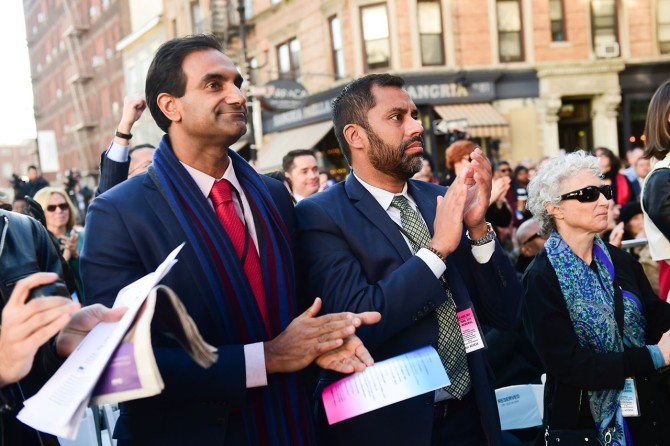Q&A: COVID-19 and public health investment
By Alyssa Sunkin-Strube
For physician and epidemiologist Dr. Jay Varma, the COVID-19 pandemic underscores not only the importance of public health, but also the powerful and pressing role of governments, academic medical centers and other organizations to work together on emerging health threats.
Varma is well-versed in the strategies to prevent and control infectious disease outbreaks. He’s dedicated his career to this work, conceptualizing and implementing large-scale programs across the globe to confront diseases such as HIV/AIDS, Tuberculosis, malaria, Zika, measles – and most recently, COVID-19.
Varma was recently recruited to Weill Cornell Medicine as a professor of population health sciences after spending more than two decades in public service with the Centers for Disease Control and Prevention. Most recently, he served as New York City Mayor Bill DeBlasio’s senior adviser for public health, where he counseled the mayor on the city’s public health response to the pandemic and organized its COVID-19 testing, tracing and vaccination campaigns.
“Emergency preparedness and response need to be something that governments and institutions invest in, practice regularly and fully fund,” he said. “We need to develop playbooks so that we can coordinate our response together on a wide range of different threats.”
That’s the goal of Weill Cornell Medicine’s new Center for Pandemic Prevention and Response, which Varma directs. Engaging experts in human and veterinary medicine, ecology, plant health and the social sciences, the center aims to inform and advance an effective response to emergent public health threats. The multidisciplinary center will focus on detecting and assessing future threats; establishing protocols to control them; conducting research and development on vaccines; and ensuring the availability of protective equipment and effective therapeutics.
We spoke with Varma, who will also serve as an adviser to NewYork-Presbyterian leadership on emergency preparedness and response, about the center, lessons learned from the COVID-19 pandemic and how we can effectively prepare for the next public health emergency.
Question: Epidemiologists have been ringing alarm bells for years about the possibility of a future pandemic, but for the general public, this seems to have come out of nowhere. What could we have done differently to prepare for the COVID-19 pandemic and what kind of investment do we need to make sure that we're ready for the next one?
Answer: For people working on emerging infectious diseases and epidemic response, this absolutely didn't come out of nowhere. We knew that this was likely to happen; we just didn't know when. The most important thing we learned with COVID is that the sooner that we can detect threats, regardless of where they emerge geographically – what we call epidemic intelligence or disease intelligence – the better we are able to contain them to that area. This really needs to be an all-hands effort globally.
Emergency preparedness and response have to be at the forefront of what we do. And we have a model for this. We know that we continue to fund fire departments, even if there hasn’t been a major fire in our neighborhood in many years. We fund physical security, whether it’s police or military, even during times when we're not actively at war or have major conflicts. All of society, and that includes universities and academic medical centers, must recognize that health security is just as fundamental to any institution or government as physical security is. You also need to be thinking beyond your walls – whether it’s the medical center, the university, the community and the institutions around you, because we all depend on each other and breathe the same air. So, I think what we are hoping will come out of this is a broader public recognition that the only way to maintain our ability to be resilient in the face of these threats is to continuously invest in them. Public health preparedness must be seen as an investment, not a cost.
Media Contact
Get Cornell news delivered right to your inbox.
Subscribe

